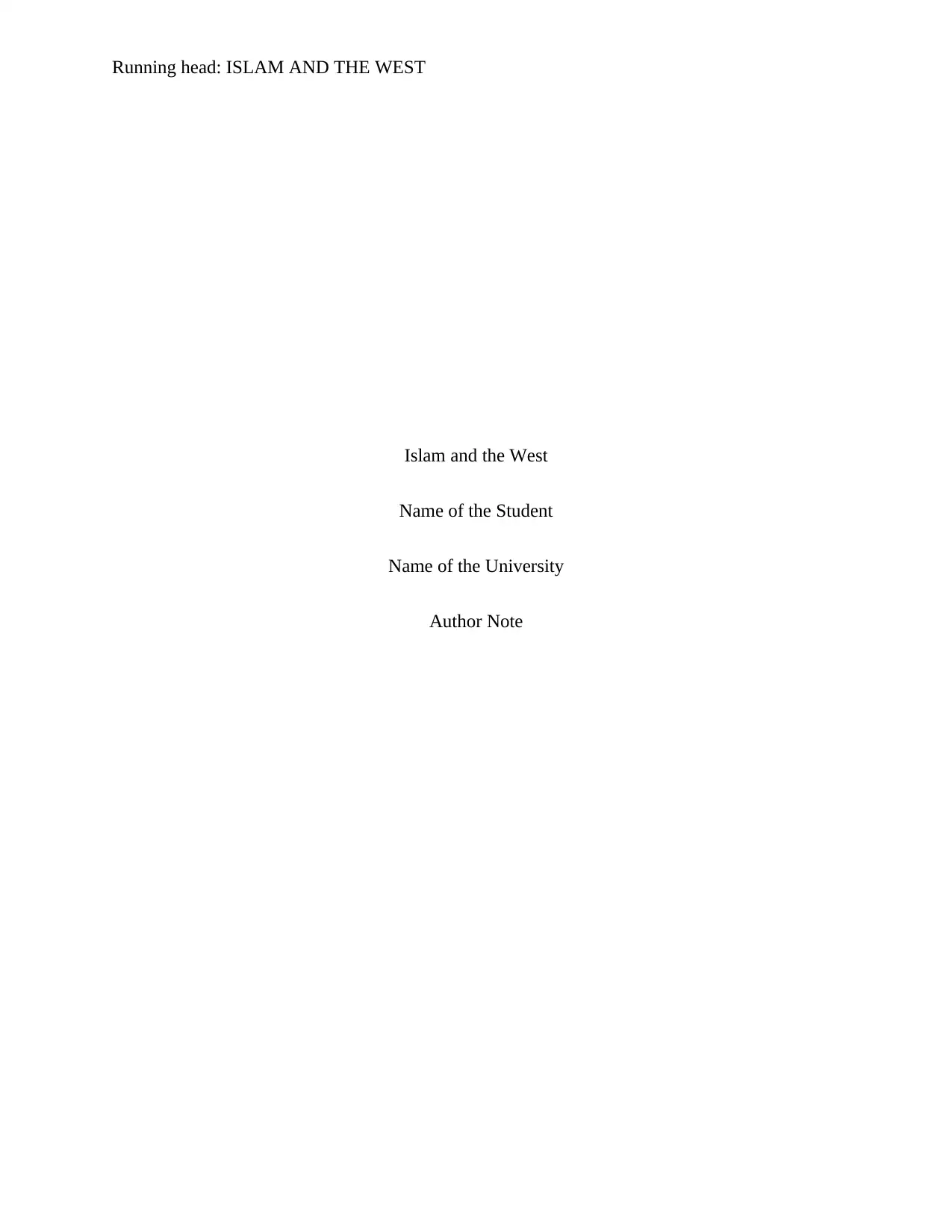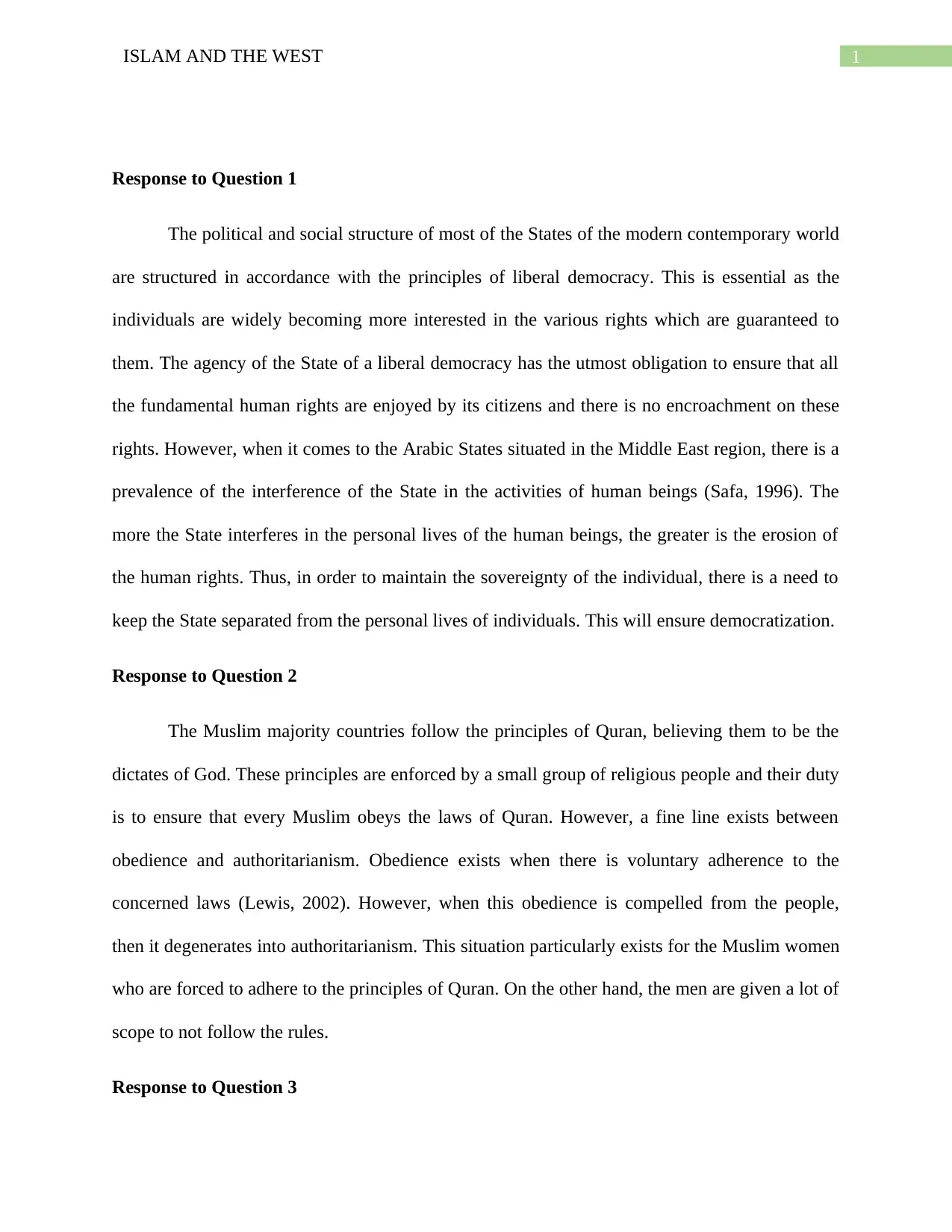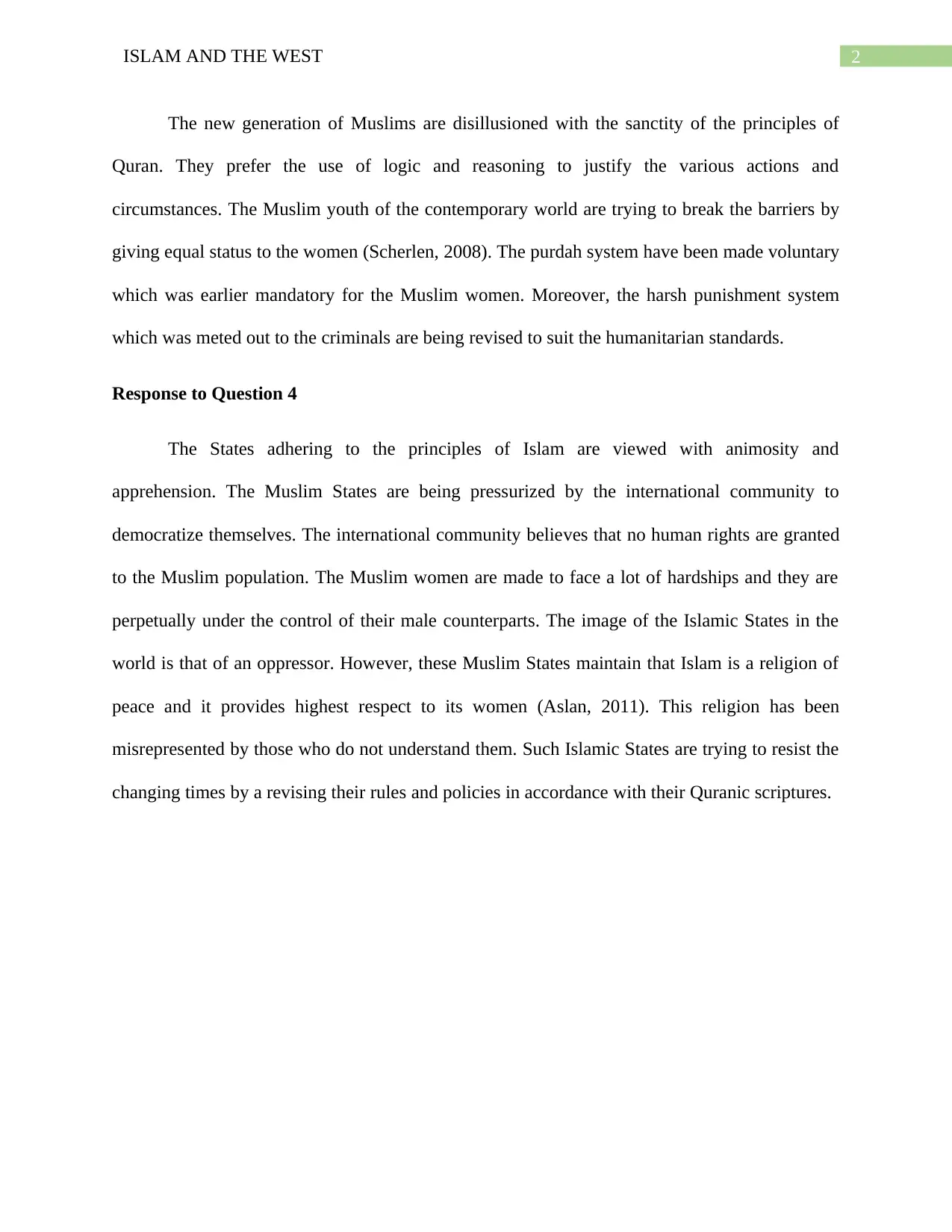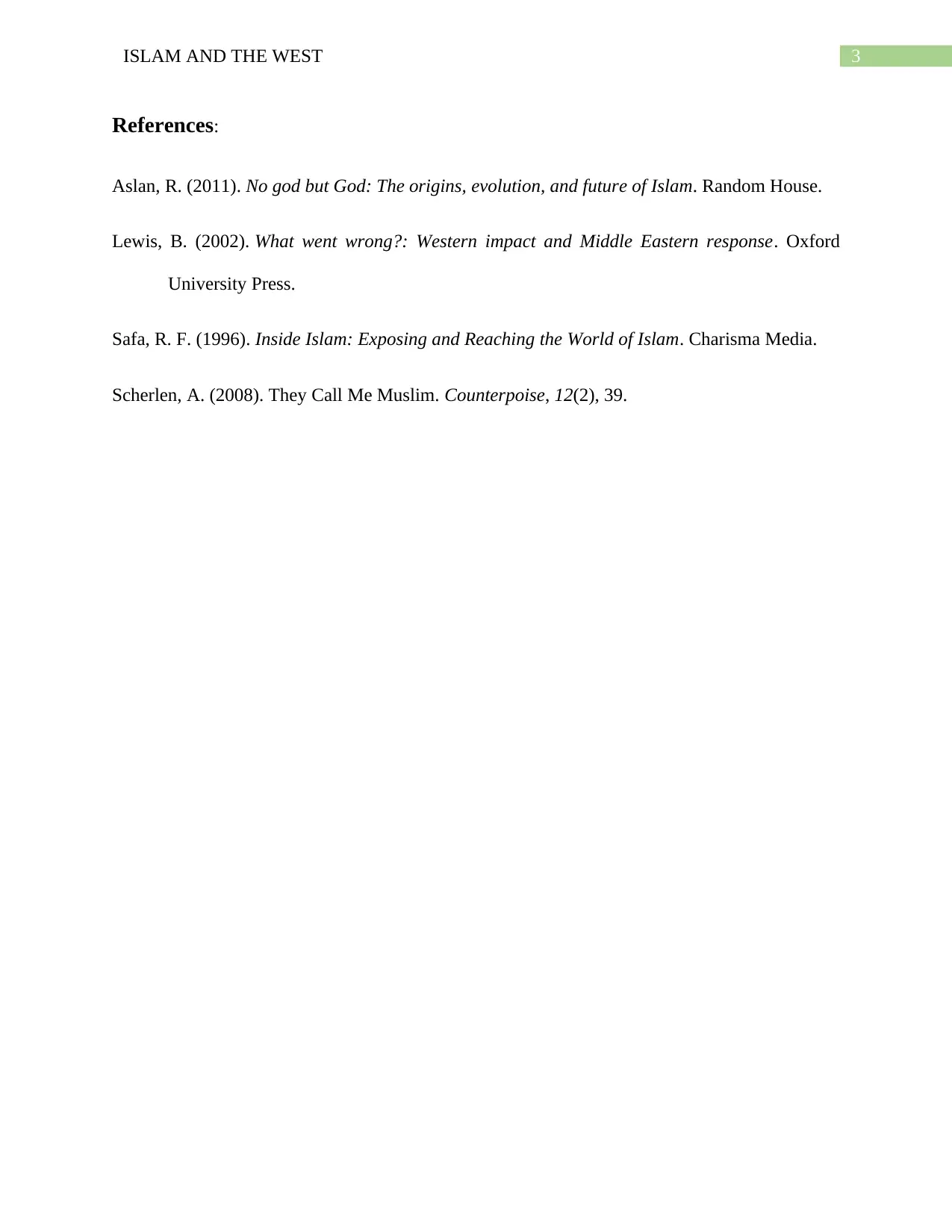Comparative Study: Islam and the West - Political and Social Views
VerifiedAdded on 2023/05/28
|4
|694
|282
Essay
AI Summary
This essay provides a comparative analysis of Islam and the West, focusing on their differing political and social structures. It examines the role of liberal democracy in Western states and contrasts it with the state interference often seen in Middle Eastern Arabic states, highlighting the impact on human rights. The essay discusses the influence of the Quran in Muslim-majority countries and the tension between obedience and authoritarianism, particularly concerning the rights of women. It also explores the evolving perspectives of the new generation of Muslims, who are increasingly questioning traditional interpretations and advocating for equality and humanitarian standards. Furthermore, the essay addresses the international community's perception of Islamic states and the efforts of these states to reconcile their religious principles with modern expectations. Desklib offers a wealth of similar resources for students seeking academic support.
1 out of 4








![[object Object]](/_next/static/media/star-bottom.7253800d.svg)